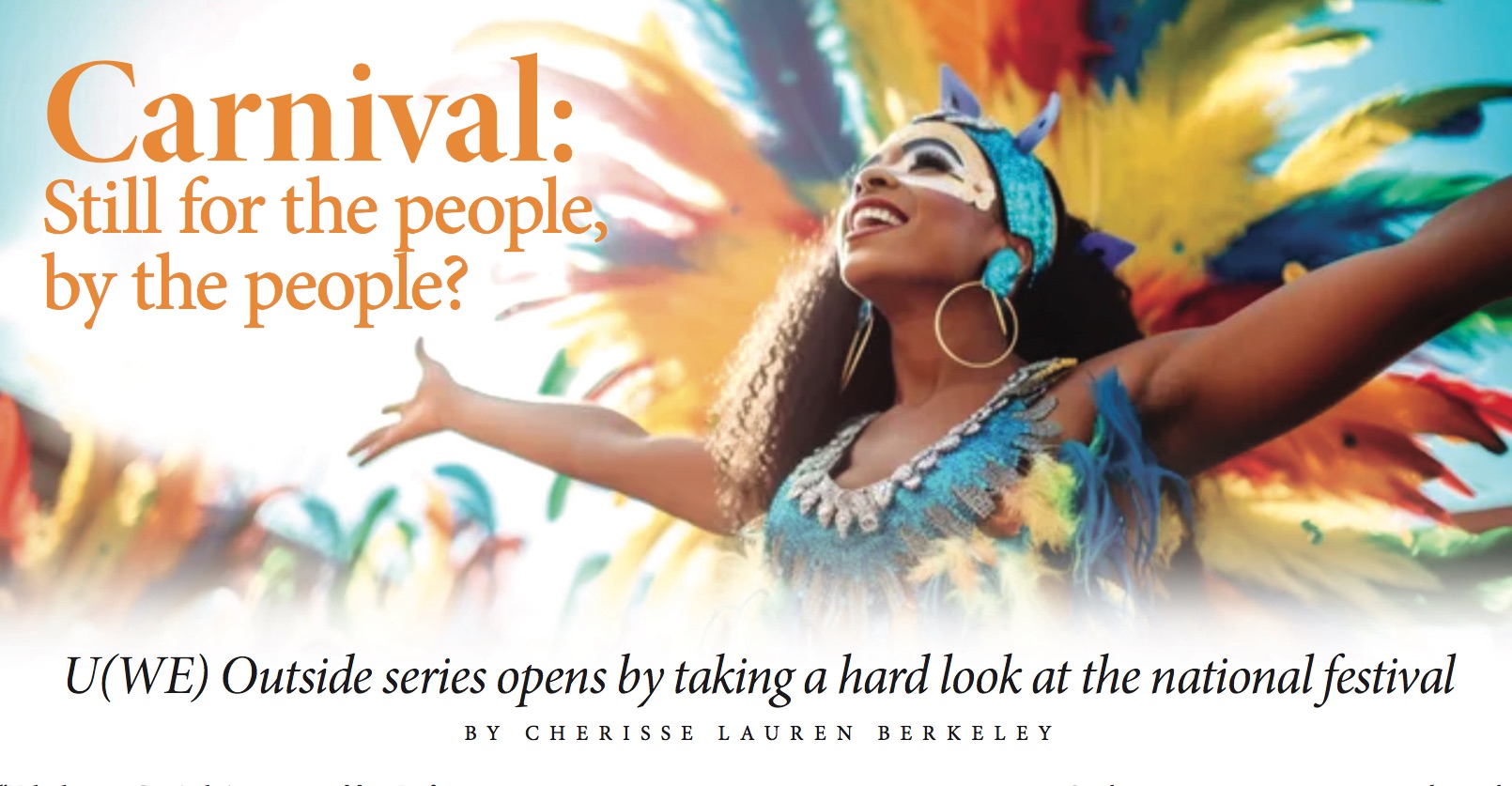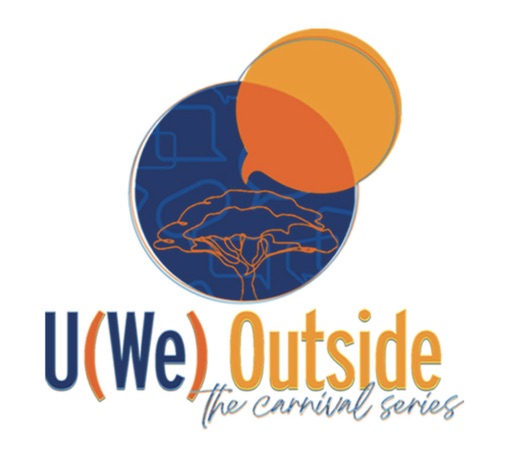
“Nobody owns Carnival. As a matter of fact, I refuse to engage the term ‘ownership’. Carnival is inheritance, and we are but mere custodians.”
So said Wendell Manwarren, member of beloved rapso band 3Canal, at a three-part discussion series on the evolution of T&T’s national festival and the social dynamics around it. Held on April 12, 19, and 26 on the St Augustine campus, it was titled “U(We) Outside: The Carnival Series” (Editor’s note: the entire three-day U(WE) Outside event is available on YouTube at https://www.youtube.com/@DLCCSUWI/streams).
Manwarren, who as one of the founders of 3Canal has been involved in Carnival since the 1990s – first as creators of a J’ouvert band and then as musical performers – said the festival was not static, but “a living, breathing ritual”. Ownership, he said, was a narcissistic notion.

U(WE) Outside was hosted by the Department of Literary, Cultural and Communication Studies in the Faculty of Humanities and Education, and held on the campus’s Learning Resource Centre (LRC) Greens. Moderated by Communication Studies lecturer Dr Douglas-Wade Brunton, the inaugural discussion questioned the ownership of Carnival in Trinidad. Its panel included Manwarren, marketing communications consultant Kim CS Kirton, social media influencer Harmony Farrell, and pan arranger Khion De Las.
In her welcome address, Deputy Dean for Distance and Outreach at the Faculty of Humanities and Education Dr Marsha Pearce described the discussion as an inside look at Carnival: “The festival is at a new crossroads, specifically as it relates to the types and levels of participation.”
The growing costs to participate, stark boundaries between traditional and contemporary masquerade, growing rural and urban divide in resource allocation, and growing agglomeration of business activities in all aspects of the festival – with particular emphasis on music and masquerade – all served as the department's motivation for hosting the panel discussion.
“These factors also impact the Carnival's capacity to act as a critical site of liberation and justice, arguably one of its main socio-political benefits,” Pearce said.
“We believe it's important for The UWI to be seen as a vital stakeholder in these ongoing discussions given its role in training and education in the Carnival Arts, as well as its expertise in festival and cultural development,” said Pearce, who is also a Lecturer in Visual Arts.
Kim Kirton, who has worked with several big names in the Carnival space, said her love of the festival came from an interest in tourism. Listing designers, bandleaders, musicians, and the food proprietors as examples of the many participants in the festival, she asked, “How can anyone own anything that is free?”
Admitting that this year was his first experience as a masquerader, Khion De Las said, “Carnival is owned by the people, but is also owned by the power structure. Pan and Monday night mas are surely owned by the people, but mas and soca are owned by capitalism. Onlookers have come to see masqueraders as a symbol of status and elitism.”
Speaking on conspicuous consumption during the season, Dr Brunton asked if the cost is worth participation. De Las complained he only wined on two girls as they all were engrossed in social media selfies, and said, “Having played mas (for the first time), seeing what we got in our goodie bags, I feel it was worth it. But I lacked the connection.”
Harmony Farrell rebutted, “What are we looking at as Carnival?”
She argued there is space for everyone: “We tend to view it as being forced to participate in the top five bands. Conspicuous consumption is fed into social media, and artificial intelligence algorithms regurgitate what they are fed.”
Dr Brunton asked the panel, “What is the return for me when not playing with the ‘top five bands’?”
Mr Manwarren critiqued the new business of Carnival being about being able to move product.
“The Carnival has been hijacked by a bunch of ‘mocking pretenders’, entrepreneurs and others,” he said. “Carnival is not no play thing!”
De Las spoke on the importance of social and political commentary of ole mas and pan celebrations. He said, “Pan is still for the people, there is still opportunities to spectate pan for free. In the panyard for prelims, on the drag for semis and finals, or even being on the road with the band on Monday and Tuesday.”
Giving an opposing view, Ms Farrell spoke on the economics of pan: “They still need corporations to sponsor them.”
She asked, “How do we angle the industries to be so that the running theme is not that of loss?”
In response, Kim Kirton said that collaboration is required to move forward, a sentiment echoed by De Las. “I believe in the possibility of coming together,” he said.